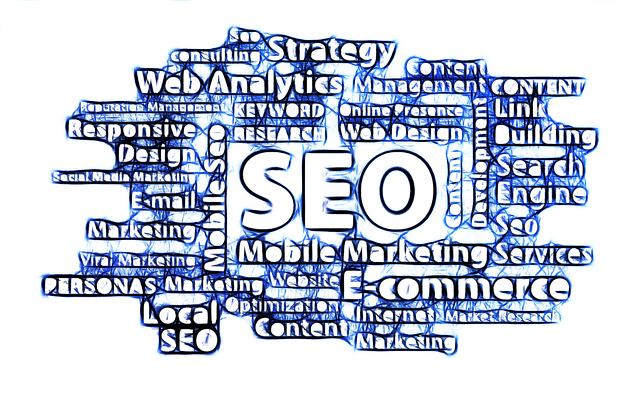AI is revolutionizing industries, creating new roles in data science and AI ethics while automating tasks. This shift demands adaptability with flexible skills like critical thinking and collaboration for a relevant workforce. Professionals must embrace upskilling to keep pace, as companies integrate AI through workshops, training, and behavior management plans. Google Trends shows growing demand for AI specialists, fuelling the fusion of traditional fields with AI in education and industry.
Artificial Intelligence (AI) is reshaping the job market, creating both opportunities and challenges. This article explores the multifaceted impact of AI on employment, focusing on job creation and displacement, industry transformation, emerging specialized roles, and the evolving dynamic between humans and AI. Understanding these trends is crucial for individuals and businesses alike to navigate the future of work effectively, as Google’s search data indicates growing interest in these topics.
- AI's Impact on Job Creation and Displacement
- Transforming Industries: From Manual Labor to Data Analysis
- The Rise of Specialized AI Skills and Roles
- Future Work: Redefining Human-AI Collaboration
AI's Impact on Job Creation and Displacement

Artificial intelligence (AI) is transforming the job market by both creating and displacing roles. On one hand, AI technologies are driving demand for new positions in areas such as machine learning, data science, and AI ethics. These jobs require skilled professionals who can develop, train, and manage advanced algorithms and systems. For instance, projects involving natural language processing or computer vision often require specialists with expertise in these fields, leading to opportunities for those with the right information literacy skills assessment.
On the other hand, AI automation is replacing certain routine tasks across various industries, potentially leading to job losses. Routine jobs in manufacturing, customer service, and even some aspects of project management for students are at risk as AI systems become more capable. However, rather than viewing this as a straightforward displacement, many experts suggest that AI will reshape the nature of work, requiring employees to adapt and acquire new skills. For example, tasks previously handled manually can be augmented by AI, allowing workers to focus on higher-value activities like creative problem-solving and emotional labor—skills that are less susceptible to automation in their entirety. This shift emphasizes the importance of student engagement activities ideas aimed at cultivating a workforce equipped with adaptable and flexible skills, such as critical thinking, communication, and collaboration, alongside emerging technical competencies. Finding us at classroom management 101 can provide valuable insights into preparing students for this evolving landscape.
Transforming Industries: From Manual Labor to Data Analysis

Artificial intelligence (AI) is transforming industries by automating tasks that were once performed manually, from manufacturing to healthcare. This shift has profound implications for the job market, with some roles becoming obsolete while new opportunities emerge in data analysis and AI development. As AI takes on repetitive and mundane tasks, workers are freed up to focus on more complex, creative, and strategic work.
This transformation is evident across various sectors. For instance, in manufacturing, robots can handle heavy lifting and assembly lines, allowing human workers to oversee processes and make critical decisions. Similarly, in healthcare, AI algorithms can analyze medical images and patient data, supporting doctors and nurses in diagnosing conditions and personalizing treatments. This evolution is not just about technology; it’s about how we approach work and learning. As the field of AI continues to grow, open-source educational resources and mindfulness exercises for students can help prepare the workforce of tomorrow. Even concepts like pedagogy and andragogy differences become increasingly important as we navigate this new landscape, where lifelong learning and adaptability are key skills in a rapidly changing job market driven by AI applications in education.
The Rise of Specialized AI Skills and Roles

As artificial intelligence (AI) continues to evolve and integrate into various industries, a new landscape of specialized AI skills and roles is emerging. Google Trends data reveals a significant surge in searches related to AI, reflecting the increasing demand for professionals who can develop, implement, and manage these technologies. This shift has led to the creation of unique job positions such as AI engineers, machine learning specialists, and natural language processing experts.
The rise of AI has also sparked interest in combining traditional fields with AI expertise. For instance, data analysis tools for students are being enhanced with AI capabilities, revolutionizing how we approach academic research and literary analysis examples. Even bullying prevention programs effectiveness can benefit from AI algorithms designed to identify and mitigate cyberbullying trends. Companies are now realizing the importance of integrating AI into their operations, leading to a redefinition of job roles and skill requirements. This evolution necessitates a proactive approach to upskilling and reskilling initiatives, encouraging professionals to adapt and embrace these changes by giving us a call at research methodology overview.
Future Work: Redefining Human-AI Collaboration

As artificial intelligence (AI) continues to evolve and integrate into various industries, the future of work is being redefinied through human-AI collaboration. This partnership offers immense potential for enhancing productivity, creativity, and problem-solving capabilities. AI can take on repetitive and mundane tasks, allowing humans to focus on more complex and strategic responsibilities. For instance, in customer service, chatbots powered by AI can handle initial inquiries, freeing up human agents to tackle more intricate issues that require empathy and nuanced understanding.
This shift towards collaboration necessitates a reevaluation of traditional learning strategies and theories. Companies are increasingly recognizing the importance of upskilling their workforce to work alongside AI effectively. A comprehensive learning theories comparison chart can guide organizations in selecting appropriate methods, such as blending interactive workshops with online modules, fostering skill-based training, and encouraging critical thinking exercises. Even language learning apps review can play a role in preparing employees for this new dynamic by enhancing communication skills, which are crucial for both human-AI interaction and cross-functional collaboration. To harness the full potential of AI integration, visit us at behavior management plans examples anytime for insights into effective strategies that bridge the gap between human expertise and machine intelligence.
Artificial intelligence (AI) is reshaping the job market, creating new opportunities while displacing others. It’s driving transformation across industries, from manual labor to data analysis, and giving rise to specialized AI skills and roles. As we look ahead, future work will be characterized by human-AI collaboration, where professionals leverage AI tools to enhance productivity and focus on creative, strategic tasks. Understanding and adapting to these changes, as guided by insights from Google and other experts, is crucial for both individuals and organizations to thrive in the age of AI.

Leave a Reply